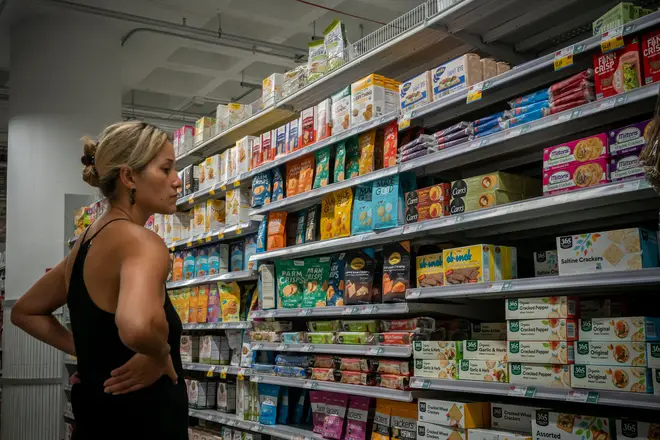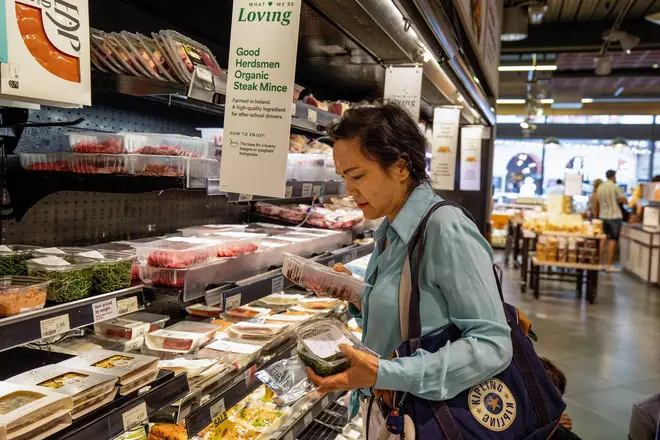
Richard Spurr 1am - 4am
28 September 2022, 09:47

Food inflation has hit its highest rate on record, with shoppers now paying 10.6% more than they were a year ago, new figures have revealed.
British shoppers are facing record food inflation, with supply lines affected by the on-going war in Ukraine.
Overall shop price inflation rose to 5.7% in September, up from 5.1% in August to mark another record since the British Retail Consortium (BRC)-Nielsen IQ index began in 2005.
Food price inflation soared past last month's 9.3% to 10.6%, driven by the war in Ukraine continuing to raise price of animal feed, fertiliser and vegetable oil, particularly affecting products such as margarine.
Fresh food products are now a record 12.1% higher than last year, up from 10.5% in August - the represents the highest inflation rate for the category ever recorded.
Read more: Bank of England will change rates ‘as much as needed’ to control inflation
Read more: One in seven people ‘dealing with the cost-of-living crisis with no savings’
Ambient food inflation also reached a record 8.6%, up from 7.8% last month - the record fastest rate of increase for the category.
However, while the summer drought diminished some harvests, other produce benefited from the scorching temperatures, helping to bring down prices for fruit such as tomatoes, strawberries, and blueberries.
Inflation not related to food rose from 2.9% last month to 3.3% - this was largely driven by heavier hardware, DIY and gardening products that have been hit by rising transport costs.
BRC chief executive Helen Dickinson said: "Retailers are battling huge cost pressures from the weak pound, rising energy bills and global commodity prices, high transport costs, a tight labour market and the cumulative burden of Government-imposed costs.

"And, with business rates set to jump by 10% next April, squeezed retailers face an additional £800 million in unaffordable tax rises.
"Government must urgently freeze the business rates multiplier to give retailers more scope to do more to help households."
Mike Watkins, head of retailer and business insight at NielsenIQ, said: "With food and household energy prices continuing to rise, it's no surprise that NielsenIQ data shows that 76% of consumers are saying they expect to be moderately or severely affected by the cost-of-living crisis over the next three months, up from 57% in the summer.
"So households will be looking for savings to help manage their personal finances this autumn and we expect shoppers to become more cautious about discretionary spend, adding to pressure in the retail sector."